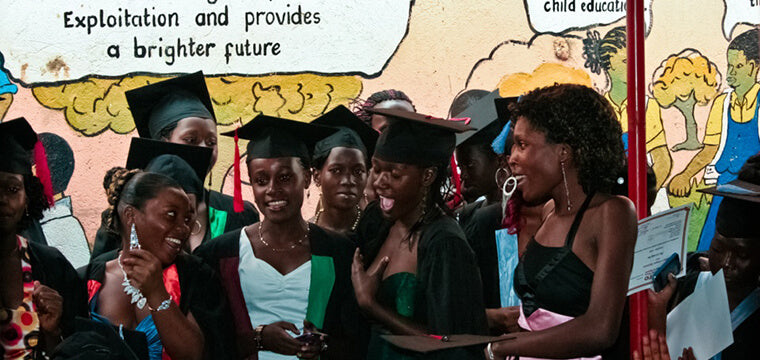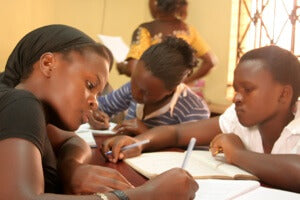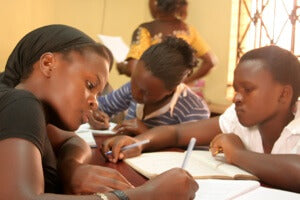Day 5
A day of vocational training for a girl in Uganda
 Opportunities through education
Opportunities through education


for strong women

need
Educational opportunities for women
activity
Further vocational training for women is offered
Measurable performance
Number of women who successfully complete the training program after seven months
Result
Number of women who find a job after the vocational qualification phase
Systemically relevant impact
Young women in Kampala lead self-determined lives without poverty and prostitution. Employers can hire qualified workers. A professional network is created.
background


The good deed
AboutUganda
Kampala
Capital city
589 US$
Population

35,357,000 (2013)
Gross domestic product
per capita per year

161
Human Development Index
(Human Development Index)



